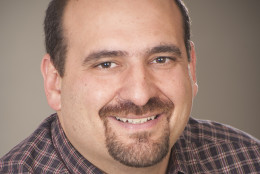Management
On this edition of Columbia Technology Partners’ Ready To Prime, Allen Scott is joined by Bloomberg Government’s Senior Data Analyst Paul Murphy to discuss the appropriations process — those contracts don’t fund themselves.
August 31, 2015-
Jack Horan, Government Contracts Partner at Dentons LLP, joins host Roger Waldron to talk about recent developments under the Civil False Claims Act. September 1, 2015
August 31, 2015 -
As agencies enter the final month of the fiscal year, spending is expected to increase significantly, especially through multiple award contracts.
August 31, 2015 -
The departments of Veterans Affairs and Labor could use a long-established approach to making services for veterans easier to find if they'd only remember it's there.
August 31, 2015 -
A picture of President Barack Obama's contributions after he leaves office is starting to get a little clearer. The New York Times reports Obama is asking business and tech executives for ideas on how to make government work better. Tom Shoop is editor in chief of Government Executive magazine. He tells In Depth with Francis Rose that Herbert Hoover's legacy might be a good indication of what Obama's post-presidential role will look like.
August 28, 2015 -
As part of the Pentagon’s effort to build cozier relationships with Silicon Valley, the Pentagon says it will become the largest investor in a new research symposium that hopes to create a new generation of electronic components. Federal News Radio’s Jared Serbu has more on DoD’s investment plan and what it hopes to achieve.
August 28, 2015 -
The Labor Department used to be one of the worst places to work, according to its own employees. Secretary Tom Perez set out to change that when he arrived in July 2013. Deputy Secretary Chris Lu says it's his personal mission too. Today the Labor Department is right in the middle of the pack. Lu tells Federal News Radio's Emily Kopp how it's aiming for the top.
August 28, 2015 -
The primary debate about the future of the Army right is how large or small it should be. But that's precisely the wrong debate given the wars in Iraq and Afghanistan are still going. Retired Army Lt. Gen. James Dubik is former commander of the Multi-National Security Transition Command in Iraq, and is now senior fellow at the Institute of Land Warfare at the Association of the Army. He tells In Depth with Francis Rose that there are seven factors to consider before the war ends.
August 28, 2015 -
President Barack Obama authorized a pay raise for civilian and uniformed federal employees effective Jan. 1, 2016.
August 28, 2015 -
The Pentagon has proposed base closures for the past four years, and Congress keeps saying no. Among the most costly defense activities is maintaining some 1,000 bases, camps and airfields around the world. How did DoD wind up with so many bases overseas in the first place? David Vine is an associate professor of anthropology at American University and author of "Base Nation: How Military Bases Abroad Harm America and the World." He joined the Federal Drive with Tom Temin to offer some insight into how the military could rationalize some of this real estate.
August 28, 2015 -
Tony Scott, the federal chief information officer, said agencies need to build from within to address talent gaps throughout the government.
August 28, 2015 -
Jeff Neal, senior vice president for ICF International and former chief human capital officer at the Department of Homeland Security, says federal employee unions, like the people they represent, come in a lot of flavors.
August 28, 2015 -
Saturday marks the ten-year anniversary of the day Hurricane Katrina made landfall in southern Louisiana. The Pentagon says in the decade since then, it’s made several changes that are intended to get Defense Department resources to local disaster zones within hours instead of days. More from Federal News Radio’s DoD reporter, Jared Serbu.
August 27, 2015 -
Federal Chief Information Officer Tony Scott quickly recognized federal agencies and the private sector have the similar challenges in hiring and training IT workers. In his short seven months in government, Scott added the IT workforce to his top-priority list. Scott tells executive editor Jason Miller about how OMB will ramp its efforts to improve the federal technology workforce over the next few months.
August 27, 2015 -
Veteran owned small businesses might have too many options to help them earn federal contracting opportunities. And the differences between the Service Disabled Veteran-Owned Small Business Concern and Vets First program are confusing. Marci Love Thomas is senior counsel at the General Counsel's government contracts practice and former senior attorney adviser at the Small Business Administration. She tells In Depth with Francis Rose about the differences between the two programs.
August 27, 2015









